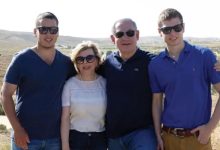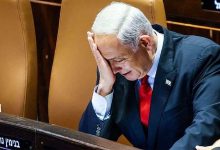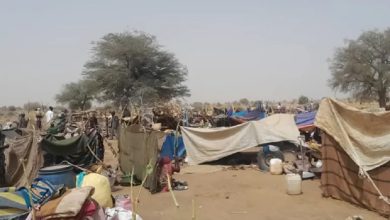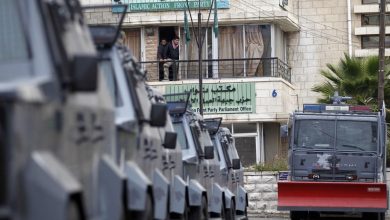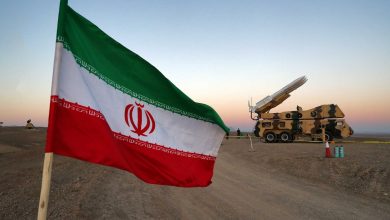Bearing Witness: An Australian Doctor’s Tribute to Palestinian Medics Killed in Gaza
Australian emergency physician Amy Nelson reflects on the lives and loss of medics killed by Israeli forces, recounting her time working alongside them in Gaza.

Watan-Australian emergency medicine doctor Amy Nelson, who has worked with Médecins Sans Frontières, the International Committee of the Red Cross, and the German organization CADUS, wrote that she personally knew several of the medics killed by Israeli soldiers in the March 23 massacre near Rafah and expressed her deep sorrow.
She wrote:“I write to bear witness to the incredible greatness of these men, to their kindness, gentleness, and goodness… When the first reports came in about the execution of eight medics from the Palestinian Red Crescent Society and the disappearance of another medic during Eid al-Fitr, I stared for a long time at the photos of the men who were killed by the Israeli army. Since then, my attachment to them has grown day by day. I knew some of these men.”
She explained that she looked at those images thinking back to her days in Gaza last year, “searching for these men in my memory—I saw them with patients, kneeling beside stretchers that served as beds, dressing wounds, speaking calmly and reassuring. I saw them carrying patients into ambulances and driving off through the summer dust, then later, laughing and playing football on the tennis court.”
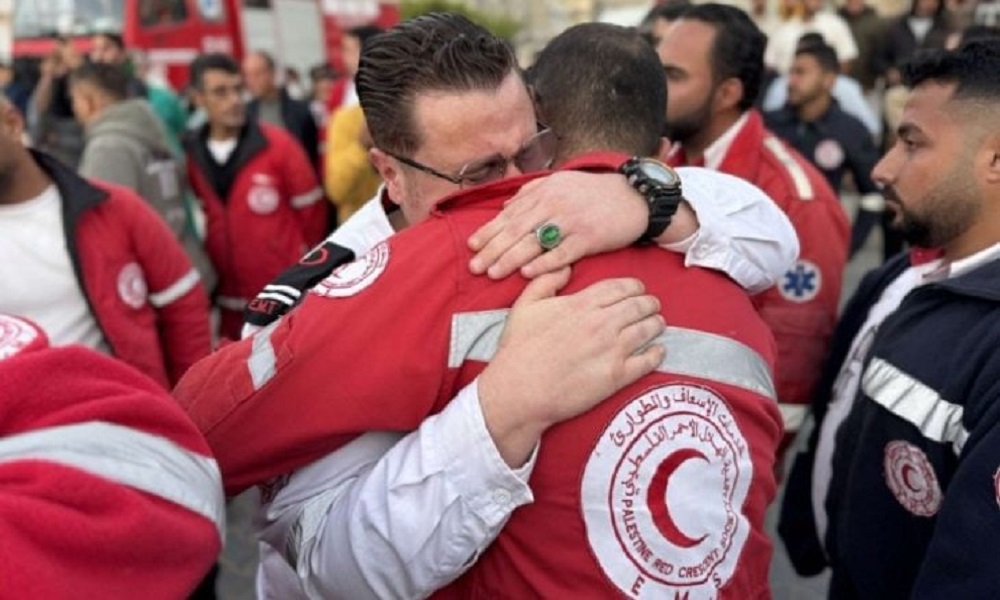
Killed While Saving Lives
She continued:“Eight Palestinian medics, working under the auspices of the International Federation of Red Cross and Red Crescent Societies, fully protected by its emblem, were killed by Israeli forces in a blatant violation of international humanitarian law—and of the very meaning of humanity. They were killed and buried alongside six civil defense medics from Gaza and one UN staff member.”
She added:“In April 2024, I was part of an emergency medical team providing care in Gaza. At the request of the World Health Organization, our team worked with the Palestinian Red Crescent Society at a trauma stabilization point. What an honor! On a tennis court in Khan Younis, we operated from two tents—one for the Red Crescent, one for us—working together continuously and with full cooperation.
She added:“We examined patients, treated what we could, stabilized them, and referred those we couldn’t treat to other facilities. The medics brought patients straight from the front lines, and once stabilized, returned them to ambulances and transported them to places where they hoped proper care could be received. The Red Crescent medics I worked with in Khan Younis faced far greater risks than anything I’ve ever faced in over a decade of working in conflict zones—to deliver life-saving care to their fellow citizens.”
Last year, after returning from Gaza, Nelson had written an article saying that “Israel poses a concrete and unprecedented danger to humanitarian and medical workers in Gaza.”
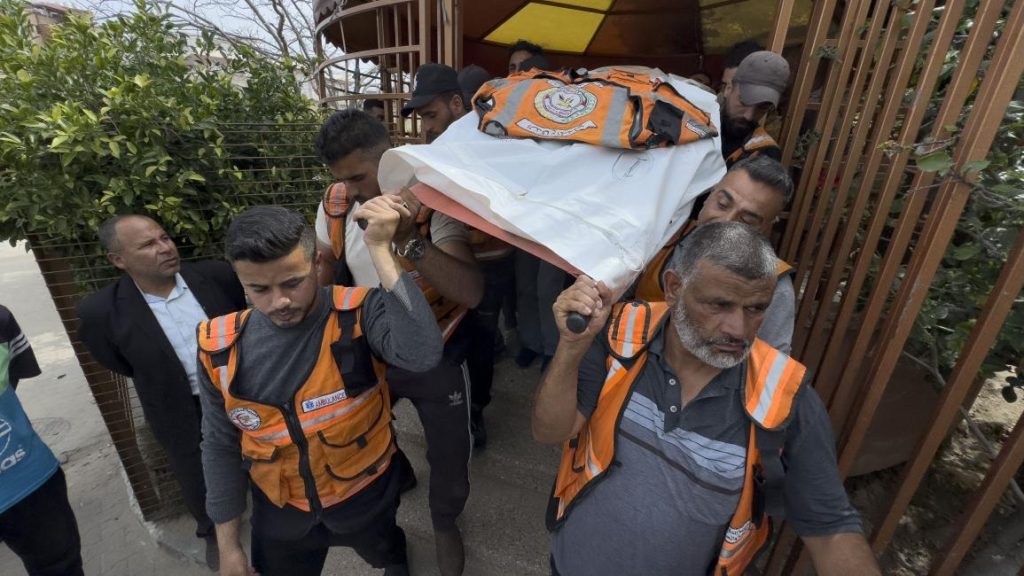
Humanity in the Line of Fire
According to the latest reports from the UN Office for the Coordination of Humanitarian Affairs, since October 2023, at least 409 humanitarian workers have been killed in Gaza, and the number is steadily increasing. Australian aid worker Zomi Frankcom was among them—her death anniversary passed quietly just a few days ago.
Nelson wrote:“For me, humanitarian medical work means contributing to health care for those in the greatest need, and also bearing witness to their suffering, however the moment demands. I write now not to bear witness to the suffering of the Red Crescent medical staff—you can read about that yourself. In fact, if you have not seen Israel’s blatant violence against healthcare workers and civilians in Gaza and the West Bank, then you are blind. Nor am I writing just to bear witness to these men’s incredible character—their love, kindness, gentleness, and goodness. In war—especially in massacres, or even genocide—we stop seeing people’s humanity far too quickly. Erasure requires this kind of forgetting.”
She added:“I saw Palestinian Red Crescent workers giving their all, working hard and effectively. I sat with them among the patients, listened to their emotional conversations, and admired their morale. In more private and candid moments, they explained: what choice did they have? They needed to hold on to enough hope each day to stand up and keep going. They were exhausted and afraid, but they carried on.”
She continued:“We shared meals together in a war zone, and despite the austerity brought on by Israel’s systematic blockade of supplies into Gaza, our Red Crescent colleagues fed us daily from their kitchens. It seemed that the Red Crescent workers gave from an endless well of generosity.”

Grief Beyond Words
Nelson noted that many in the medical and humanitarian fields today are overwhelmed with grief, anger, and anxiety about the prospect of working in future war zones. She wrote:“Experienced humanitarian workers know that the deaths of our colleagues are not collateral damage caused by the routine of war. Maybe war was murky in the 19th century, but I assure you it is not in the 21st. Israel has proven its exceptional capacity for precision targeting. None of us have the luxury to wait for delayed actions by the International Criminal Court or the International Court of Justice to confirm what we see with our own eyes. States must recognize Israel’s violations of the laws of war—and act on them.”
She concluded with the words of a former colleague from the International Committee of the Red Cross, who wrote on Instagram:“Grief has lost its meaning.”
She added:“We are all at a loss for words. Another friend wrote to me: ‘It’s a huge challenge to honor their lives properly.’ As I struggle to write, yanking words out like teeth without anesthesia, I feel my friends’ words in my body and soul. I cannot rise to this challenge. Nothing I say can adequately honor the men of the Palestinian Red Crescent Society. Instead, I write in grief—for history.”

